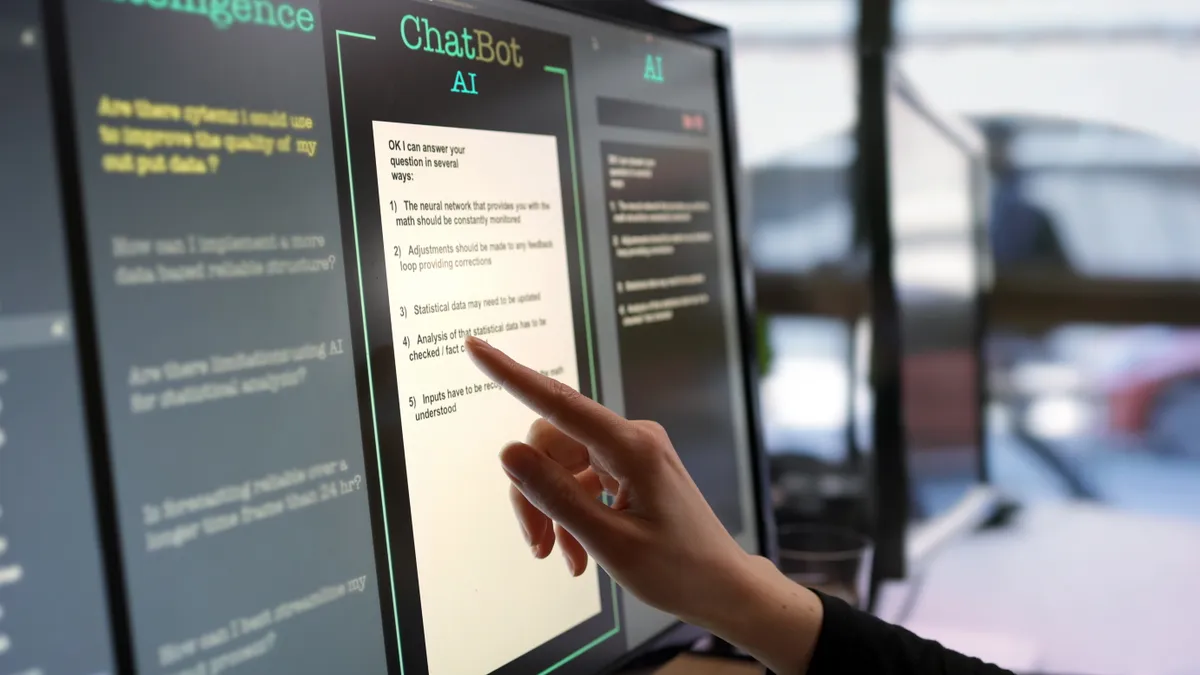As MOOCs become increasingly popular as tools for facilitating blended learning, it's no surprise that they're also finding their way from higher ed to high school — particularly Advanced Placement courses.
Davidson College, MOOC provider edX, and the College Board on Wednesday announced the launch of Davidson Next, a free blended learning project focused on augmenting teaching and learning in AP Calculus (AB/BC), AP Physics 1 and 2, and AP Macroeconomics. For all three organizations, the effort to boost AP courses with online, self-paced modules centered around the three subjects' most difficult concepts — as determined by proprietary College Board data — is all about access.
"From Davidson’s perspective, this is a really important institutional goal and really part of our mission," said Pat Sellers, Davidson Next Project Supervisor and VP for Strategic Partnerships. "This is one of only several projects where we’re really trying to focus on enhancing access to high-quality educational materials, and this AP edX project is really a great way to do that because we have put together all of the modules and they’re going to be available for free to everyone everywhere in the world."
EdX CEO Anant Agarwal added, “Blended learning is a big part of what we do. Our thinking, in terms of using the massiveness of the edX platform, what you can do is that, as we roll this out, as learners begin using the materials and doing the assessments, we will have massive data sets on how students are doing in various parts of the materials, what parts need to be augmented, what parts have been successful."
The program was piloted during the 2014-15 academic year in 26 high schools, primarily in North Carolina's Charlotte-Mecklenburg district with additional schools from Durham, Greensboro, and Asheville, as well as South Carolina's Charleston district. In all, 34 teachers and 1,200 students were included in the test run.
Along with easing the learning process for students with content including videos, interactive tools, and assessment questions, Sellers says the platform would "arguably make it easier for teachers who may be hesitant to take on AP physics, which is really hard to teach. Or calculus or macroeconomics. With the support of materials like ours, they may be more willing to launch those kinds of courses."
Davidson Next can also facilitate teachers with their own separate instances of each MOOC, with all of the content intact alongside private discussion forums and performance data for the students in their class alone. But it also provides a professional development opportunity via a "Teaching With Davidson Next" course for teachers, a detail that Davidson Next Project Manager Julie Goff said is extremely critical for teachers using the modules, as it covers things from even the most basic level of signing up for edX and enrolling students.
"Teaching an AP class is a really unique thing, and they have a compressed timeline when it comes to getting all of the material delivered in their classroom," said Goff. "They usually have to teach everything by the beginning of April so students can start reviewing for May, so we really tried to tailor that course to the AP teacher experience — not only the content their students need to learn, but also how they can utilize the modules in different ways so that they can be successful on that timeline."
Added Sellers, "And in that respect, I think what we’re trying to do in Davidson Next is significantly different than what you see in a lot of the competitors that for-profit corporations are putting out, in that oftentimes they’ll produce the AP content, but they won’t really help teachers know or learn how to teach that content."
That all three organizations involved in Davidson Next are nonprofit is no coincidence, either.
"[Access is] a much easier goal to move toward and achieve with a nonprofit organization like edX," said Sellers, noting that edX was able to bring a platform where Davidson and College Board did not have that capability, "where under Anant’s leadership, they’ve really worked to try and expand educational opportunities across the world."
"A lot of the decisions that we can make are driven more by access and mission than, ‘Look, is someone gonna profit from it?’" said Agarwal. "The second big part of it is that one of the goals of edX is to improve the blended model — not to disrupt the campus, but to augment it and improve it."
To what extent the project furthers all parties' goals going forward remains to be seen, but preliminary surveys show 70% of teachers in the pilot wanting to use the modules again, and 200 are currently expected to use it in the next school year. Plus, Houston is currently in talks to bring Davidson Next to its district.
Would you like to see more education news like this in your inbox on a daily basis? Subscribe to our Education Dive email newsletter! You may also want to read Education Dive's look at the move away from standardized exams in grad school admissions.























